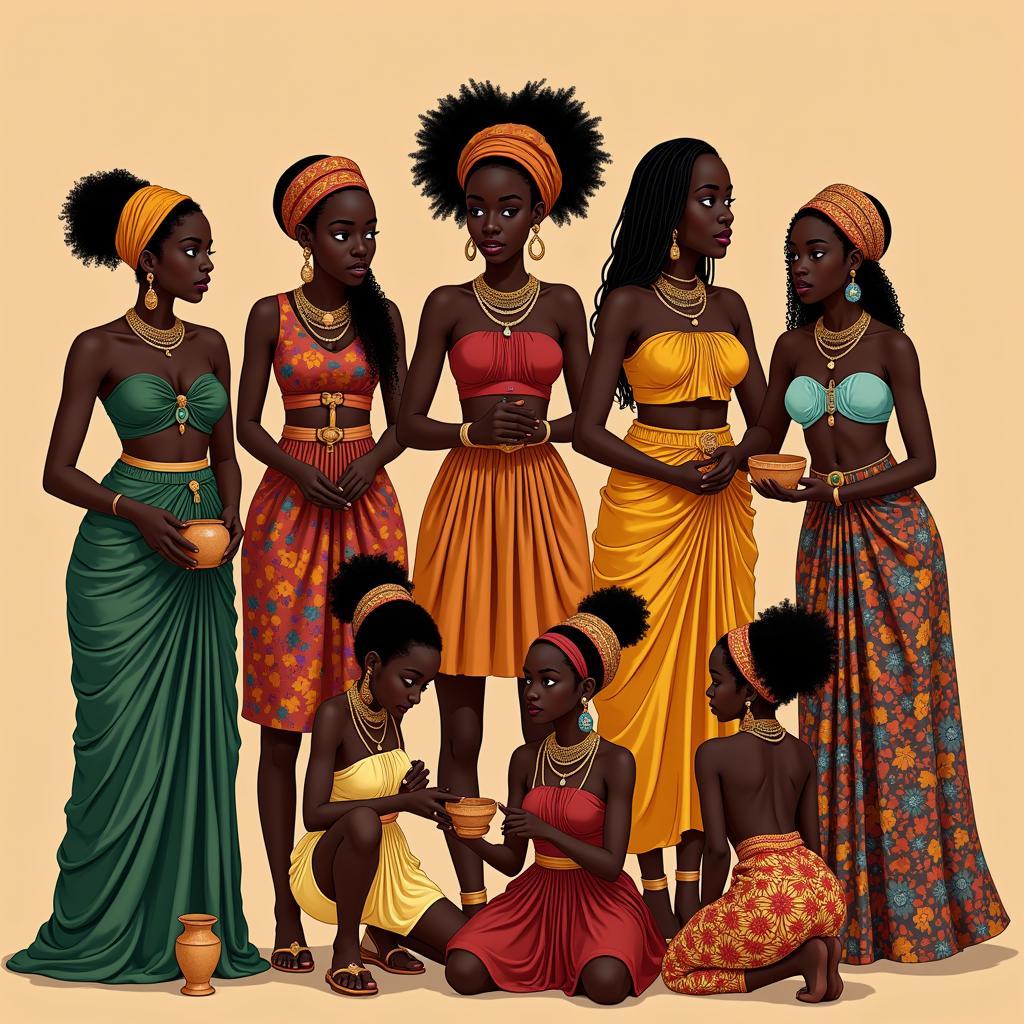The Tragic Legacy of 12 Million African Slaves
The transatlantic slave trade, a dark chapter in human history, forcibly displaced and enslaved an estimated 12 million African people. This article delves into the devastating impact of this trade, exploring its origins, the harrowing journey across the Atlantic, and the enduring legacy it left on both Africa and the Americas.
Understanding the Scale of 12 Million African Slaves
The number 12 million represents a staggering loss of human life and potential. It’s crucial to understand that this is an estimate, and the true number may never be known due to incomplete records and the sheer scale of the tragedy. This forced migration decimated communities, disrupted social structures, and fueled economic exploitation. life of an african slave provided a glimpse into the brutality and dehumanization they faced.
The Origins of the Transatlantic Slave Trade
The transatlantic slave trade began in the 15th century, driven by the growing demand for labor in the Americas. European powers established colonies and plantations, relying on enslaved Africans to cultivate cash crops like sugar, tobacco, and cotton. african kings selling slaves played a role in facilitating this trade, often exchanging captives of war for European goods. This complex dynamic highlights the interplay of economic incentives and political power.
The Middle Passage: A Journey of Horror
The Middle Passage, the voyage across the Atlantic, was a horrific ordeal for enslaved Africans. Cramped into unsanitary conditions, they faced disease, starvation, and brutal treatment. Millions perished during this journey, their bodies thrown overboard into the ocean. The psychological trauma inflicted on survivors was immense.
The Impact on Africa
The transatlantic slave trade had a devastating impact on Africa. The loss of so many people, particularly young and able-bodied individuals, crippled economic development and societal progress. It also fueled conflict and instability as some African kingdoms engaged in wars to capture slaves for trade. The long-term consequences of this exploitation continue to be felt today.
The Legacy of Slavery in the Americas
The arrival of 12 million enslaved Africans in the Americas fundamentally shaped the social, economic, and political landscape of the New World. Their forced labor built economies and generated immense wealth for European colonizers. However, it also led to the development of deeply ingrained systems of racism and inequality that persist to this day. The african american slave trade is a testament to the struggles and resilience of African Americans in their fight for freedom and equality.
Remembering the 12 Million
Remembering and honoring the 12 Million African Slaves is essential. We must acknowledge the immense suffering they endured and the lasting impact of this horrific trade. Education and open dialogue are crucial to understanding the complexities of this history and working towards a more just and equitable future. african gospel artists often draw inspiration from this history, creating powerful music that speaks to resilience and hope.
Conclusion
The transatlantic slave trade, involving an estimated 12 million African slaves, represents a profound tragedy. Understanding its scale, origins, and enduring legacy is crucial for acknowledging the past and working towards a future where such atrocities are never repeated.
Kaka Maganga, a renowned historian specializing in African Studies, emphasizes the importance of understanding the transatlantic slave trade: “We must never forget the 12 million lives lost and the devastating impact on African societies. This history must inform our present and future efforts to combat racism and inequality.” Dr. Aisha Mohamed, an expert on the African diaspora, adds, “The legacy of slavery continues to shape our world. It’s our responsibility to learn from the past and work towards a more just and equitable future for all.”
FAQ:
- What was the Middle Passage?
- How did the slave trade impact Africa?
- What were the main causes of the transatlantic slave trade?
When you need support, please contact Phone Number: +255768904061, Email: [email protected] Or visit: Mbarali DC Mawindi, Kangaga, Tanzania. We have a 24/7 customer support team.

